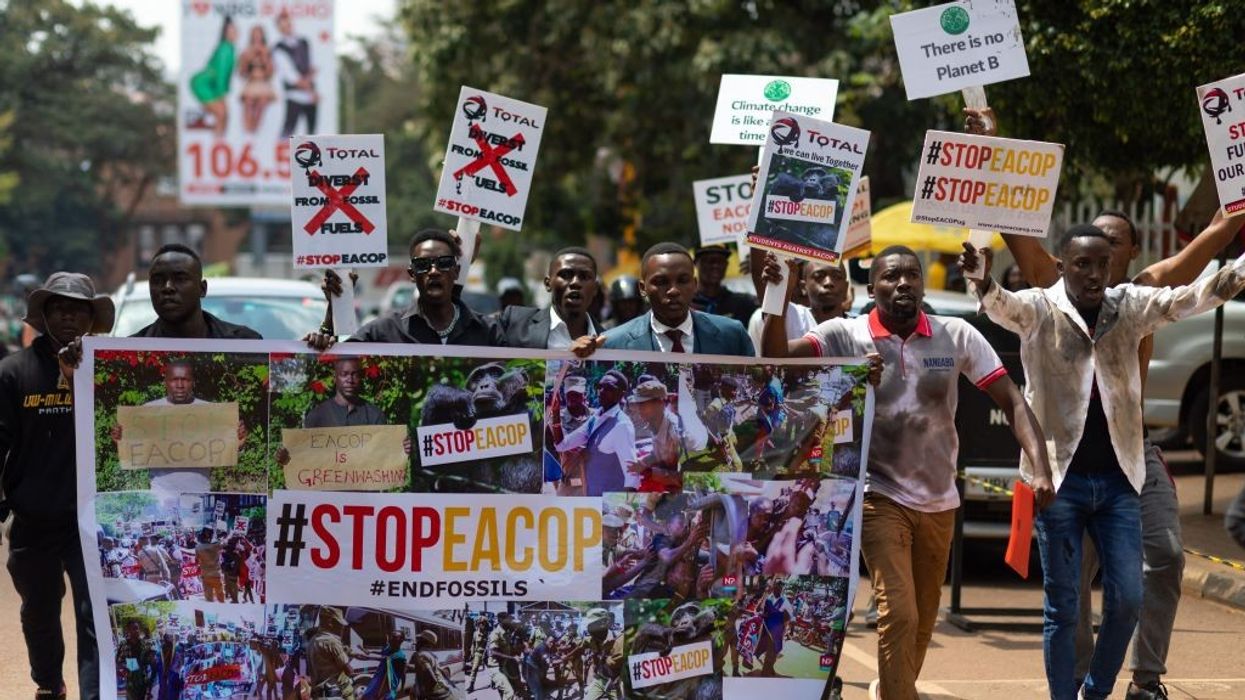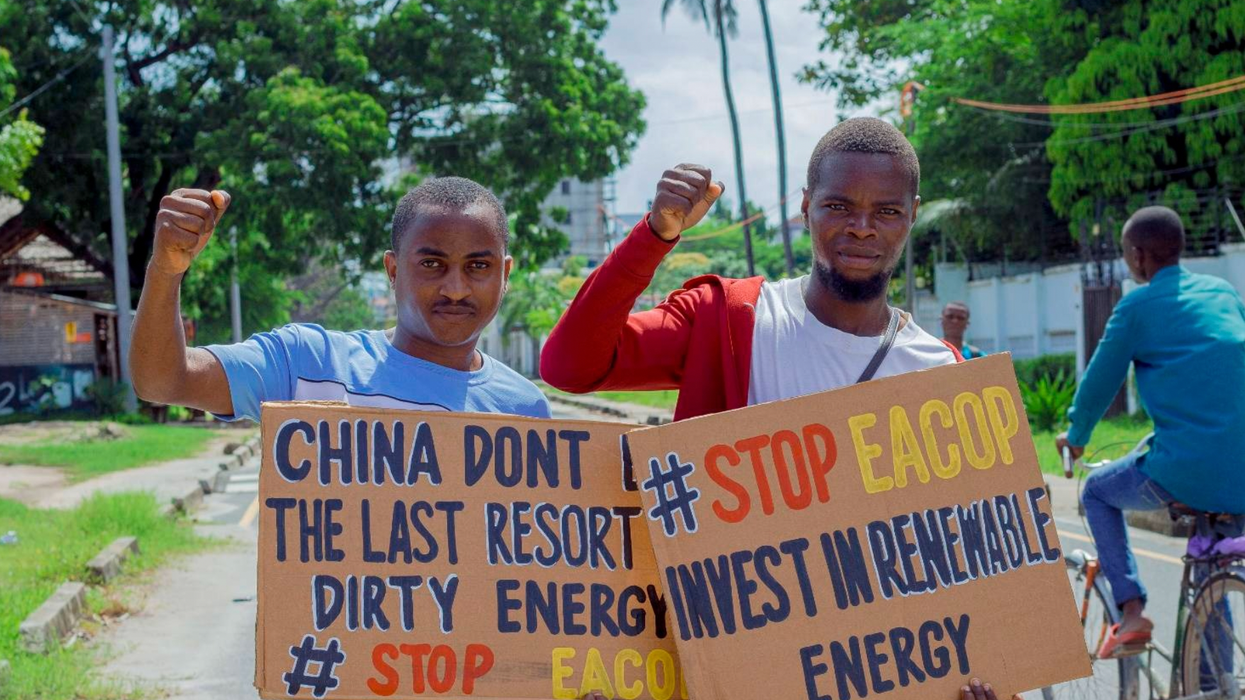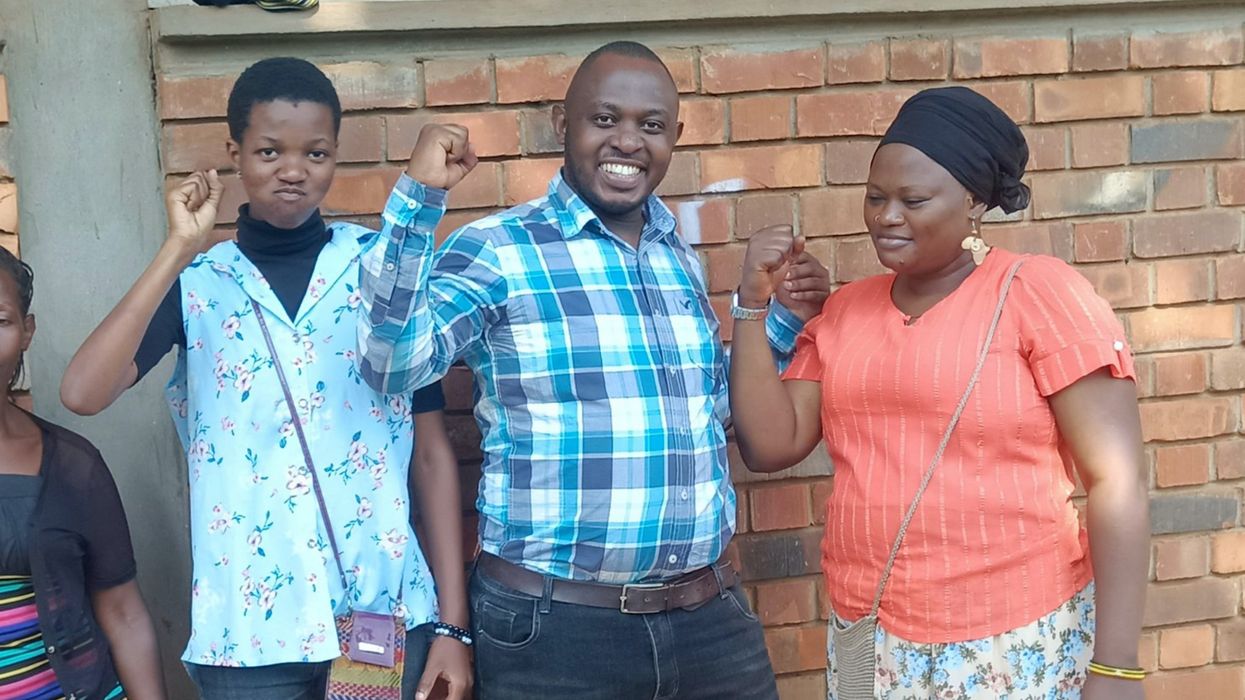Africa Pipeline Foes Demand Accountability After Brutal Detention of Ugandan Activist
"Speaking up for frontline communities should never lead to this," the #StopEACOP movement said following the release of Stephen Kwikiriza, who was held for a week for opposing the TotalEnergies/CNOOC-led project.
Opponents of a highly controversial oil pipeline under construction in East Africa on Monday demanded an investigation into the Ugandan army's treatment of an environmental activist who was hospitalized after allegedly being severely beaten while he was detained last week.
Stephen Kwikiriza, an activist with the Kampala-based Environmental Governance Institute (EGI), was found dumped on the side of a highway about five hours' drive from the Ugandan capital Sunday night following a weeklong detention by the country's army.
"Unfortunately, he is in poor condition after enduring severe beatings, mistreatment, and abuse throughout the week," EGI said, according to Al Jazeera. "Doctors are conducting various examinations."
Like other climate and environmental campaigners in the movement to stop the East African Crude Oil Pipeline (EACOP), Kwikiriza is believed to have been targeted for his activism against the project, which is being built by the French fossil fuel giant TotalEnergies in partnership with the China National Offshore Oil Corporation (CNOOC), the Uganda National Oil Company, and others.
The Paris-based International Federation for Human Rights (FIDH) said Kwikiriza was apparently abducted by Ugandan army officers in civilian clothes in what the group called a "particularly worrying escalation of repression."
FIDH said 11 activists have been "kidnapped, arbitrarily arrested, detained, or subjected to different forms of harassment by the Ugandan authorities between May 27 and June 5, 2024," part of what critics call a government campaign targeting StopEACOP campaigners that goes back years.
"Speaking up for frontline communities should never lead to this," the StopEACOP movement
said on social media following Kwikiriza's release. "We urge human rights organizations to hold Ugandan authorities accountable and ensure human rights and environmental defenders can work safely."
"We also ask TotalEnergies and CNOOC to investigate the injustices done in their names as alleged," the coalition added. "You can still make profits without harming communities or enabling human rights violations."
A senior Ugandan military official told Agence France-Presse that Kwikiriza "was taken into custody for questioning regarding his illegal activities, including mobilizing fellow activists to oppose the oil pipeline."
In a statement to
Reuters, TotalEnergies said Monday that the company "does not tolerate any threat or attack against those who peacefully defend and promote human rights."
If completed, the $3.5 billion, nearly 900-mile EACOP project is expected to transport up to 230,000 barrels of crude oil per day from fields in the Lake Albert region of western Uganda through the world's longest electrically heated pipeline to the Tanzanian port city of Tanga on the Indian Ocean.
A July 2023 report by Human Rights Watch (HRW) detailed how EACOP has devastated the lives and livelihoods of tens of thousands of people in its path while exacerbating the climate emergency.
"The Ugandan government needs to end its harassment of opponents of oil development in the country, such as the East African Crude Oil Pipeline Project, which has already devastated thousands of people's livelihoods in Uganda and, if completed, will displace thousands of people and contribute to the global climate crisis," HRW senior environmental rights advocate Myrto Tilianaki said in a statement issued during Kwikiriza's detention.


